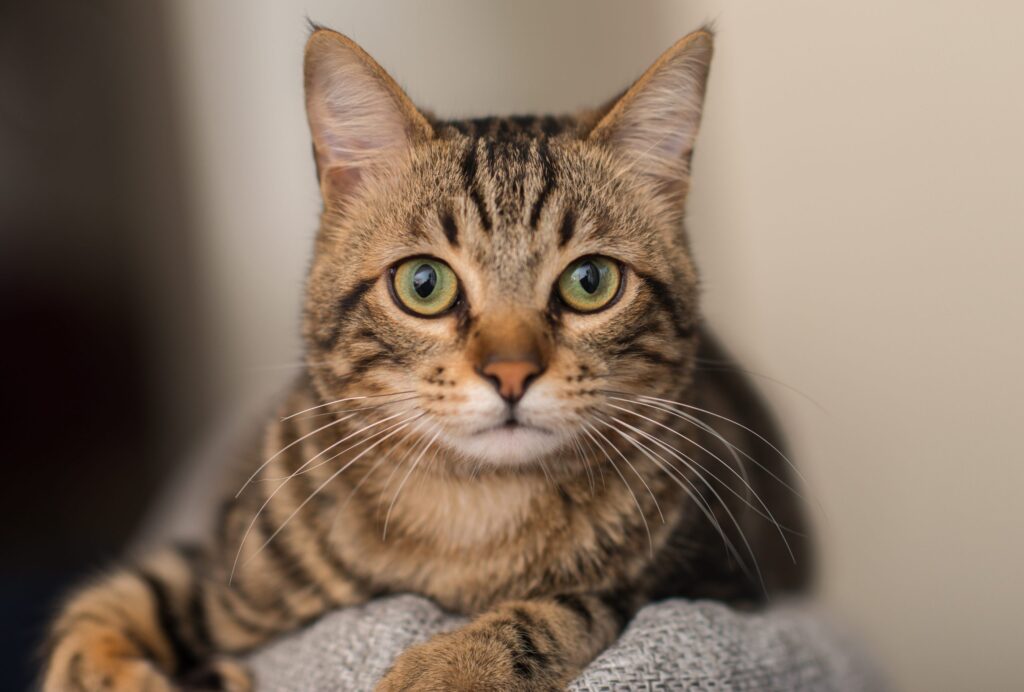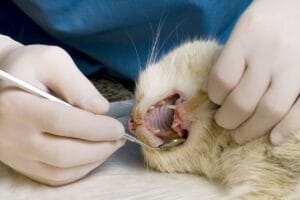The Truth About Using Hydrogen Peroxide on Cats

Want to know the truth about using hydrogen peroxide on cats?
Caring for our cats in emergencies often leads to quick decision-making, but it’s important to dispel misconceptions. One such misconception involves using hydrogen peroxide as a first aid remedy for cats. This blog post explores the truth about using hydrogen peroxide on cats, highlighting its potential risks and providing alternative methods for cat first aid.
By understanding the unique physiological differences between cats and humans, we can comprehend why hydrogen peroxide is not recommended for feline care. Safe alternatives tailored to cats will be discussed to ensure that cat owners are well-informed when it comes to providing appropriate and effective treatment during emergencies. The aim is to empower cat owners with accurate information, enabling them to make informed decisions and prioritize their cats’ well-being.
What is Hydrogen Peroxide
Hydrogen peroxide is a versatile and widely recognized household product renowned for its antiseptic and disinfectant properties. It is commonly used for wound cleaning, oral hygiene, and various other purposes. However, it is crucial to understand that hydrogen peroxide should not be assumed to be safe for cats without professional guidance.
While hydrogen peroxide has proven to be effective in certain applications, it is important to acknowledge the distinct differences between its usage for humans and cats. Cats have unique physiological characteristics that can make them more susceptible to adverse reactions or complications from substances like hydrogen peroxide. As responsible cat owners, it is our duty to prioritize their well-being and ensure their safety.
To ensure safe usage of hydrogen peroxide on humans, it is imperative to follow specific safety precautions and dilution guidelines. These guidelines are designed to minimize the potential risks and adverse effects associated with hydrogen peroxide use. However, when it comes to cats, it is always advisable to consult with a veterinarian before considering any application of hydrogen peroxide.
Using Hydrogen Peroxide on Cat Wounds

While hydrogen peroxide may be effective for certain human uses, it is not recommended for use on cats. This is due to several potential risks and dangers associated with its application. Cats have unique metabolic differences compared to humans, making them more susceptible to adverse reactions and complications from certain substances.
Here are some of the risks associated with using hydrogen peroxide on cats:
Hydrogen Peroxide Can Damage Tissue and Delay Healing
Hydrogen peroxide may seem like a logical choice for healing open cat wounds. However, it is important to understand that using hydrogen peroxide on cat wounds can potentially cause more harm than good.
When hydrogen peroxide comes into contact with a wound, it releases oxygen, leading to the formation of bubbles. While this bubbling effect may seem like a sign of effective disinfection, it can actually be detrimental to the healing process. The bubbles can burst and damage the surrounding tissue, hindering the wound’s natural healing ability and potentially exacerbating the injury.
Cats have delicate and sensitive skin, and their wounds require special care to promote proper healing. Instead of relying on hydrogen peroxide, it is advisable to consult with a veterinarian for appropriate wound care techniques and products specifically formulated for cats. These alternatives can help maintain a clean and conducive environment for healing, without the risk of tissue damage or delayed recovery.

Hydrogen Peroxide on Cats Can Cause Pain and Irritation
Using hydrogen peroxide on cat wounds can not only damage tissue but also cause pain and irritation. The strong oxidizing properties of hydrogen peroxide can lead to discomfort and stinging sensations when it comes into contact with the wound. This pain can cause your cat to become stressed, agitated, and resistant to further treatment.
Cats are known for their sensitivity, and their skin is more delicate than that of humans. The pain and discomfort caused by hydrogen peroxide can make it challenging to effectively clean or dress the wound, potentially impeding the healing process. It is crucial to prioritize your cat’s well-being and ensure their comfort during wound care.
Instead of using hydrogen peroxide, it is recommended to seek guidance from a veterinarian for appropriate pain management and wound care techniques. They can provide suitable alternatives that are specifically formulated to minimize discomfort and irritation, allowing for more effective and stress-free wound treatment.
By avoiding the use of hydrogen peroxide and opting for methods that prioritize your cat’s comfort, you can create a more positive experience for both you and your feline companion while promoting proper healing and recovery.

Hydrogen Peroxide on Cats Can Interfere with Natural Healing Process
Using hydrogen peroxide on cat wounds can have a negative impact on the natural healing process of the body. The body has its own intricate mechanisms for fighting infection and initiating the healing response. However, hydrogen peroxide can disrupt these processes and interfere with the body’s ability to heal effectively.
Hydrogen peroxide’s strong oxidizing properties can not only damage the tissue but also kill healthy cells in the area. This can impede the body’s natural healing mechanisms, potentially prolonging the recovery time for the wound. Additionally, hydrogen peroxide’s antibacterial properties may also eliminate beneficial bacteria that play a role in wound healing and protection against infection.
To ensure optimal healing, it is advisable to consult with a veterinarian who can recommend alternative methods and products specifically designed to support the natural healing process in cats. These alternatives can help create an environment that promotes effective healing without interfering with the body’s innate ability to repair and regenerate damaged tissue.
By allowing the body’s natural healing process to take place undisturbed, we can facilitate the best possible outcome for our feline companions’ wounds and ensure a smoother recovery.
Alternatives to Hydrogen Peroxide for Cat Wounds
When it comes to cleaning cat wounds, it’s important to avoid using hydrogen peroxide due to its potential risks. Fortunately, there are safer alternatives that can effectively promote healing without the drawbacks. Here are some alternatives to consider:
- Salt Water Solution: You can clean cat wounds with salt water by dissolving a small amount of salt in warm water. Then proceed to gently cleanse the wound using a clean cloth or sterile gauze. Salt water helps create an environment that discourages bacterial growth.
- Feline-Specific Antiseptic Solutions: Look for over-the-counter antiseptic solutions specially formulated for cats. These products are designed to be safe and gentle on feline skin while effectively disinfecting the wound. Should this not be available you can also make your own homemade feline antiseptic solution for cat wounds.
- Seek Veterinary Guidance: Your veterinarian is an invaluable resource when it comes to wound care. They can recommend specialized wound cleansers, ointments, or dressings that are tailored to your cat’s needs and promote optimal healing.
By opting for these alternatives, you can confidently care for your cat’s wounds while minimizing the risks associated with hydrogen peroxide. Always remember to consult with your veterinarian for personalized guidance and to ensure the best possible care for your feline companion.

Final Verdict
In summary, hydrogen peroxide should never be used on cat wounds because it can cause damage to the tissue, pain, irritation, and interfere with the body’s natural healing process. Instead, opt for safer alternatives such as salt water or feline-specific antiseptic solutions. These alternatives effectively cleanse the wound without causing tissue damage, pain, or interference with the natural healing process.
Remember to consult with your veterinarian for expert advice and recommendations tailored to your cat’s specific needs. Proper wound care is essential to promote faster healing, prevent infections, and ensure the overall comfort and well-being of your beloved feline companion. By being proactive and attentive to your cat’s wounds, you can provide the best care possible and support their recovery process.



i thought cats and all animals and humans produce hydrogen peroxide naturally. so how can it harm if a cat licks it? also, one of may cats had an open wound. the vet wanted to stitch it up ($$$). i just sprayed it with hydrogen peroxide every day and it healed up quickly. no stitches required. i wonder if hydrogen peroxide is a cure all and will put vets out of business if widely known.